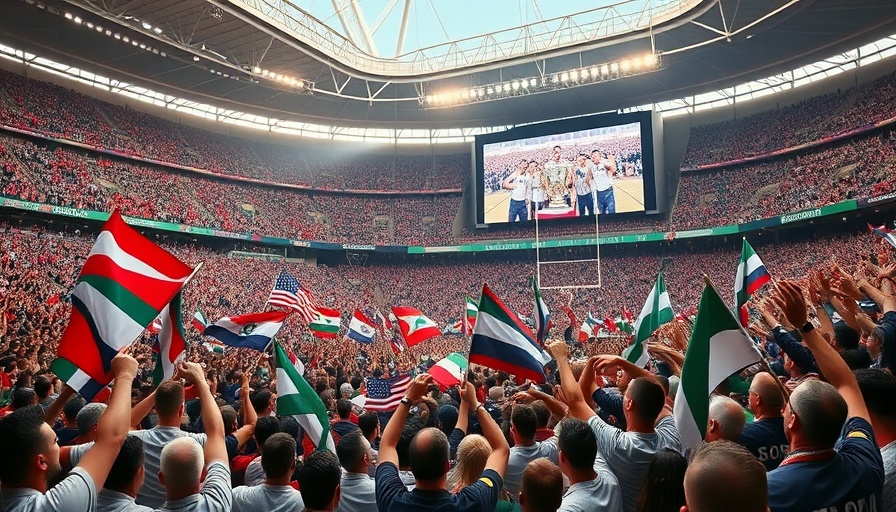
The Dream of the Rugby World Cup: A South African Perspective
The atmosphere was electric in 1995 when South Africa hosted the Rugby World Cup for the first time. The image of Françoise Pienaar and President Nelson Mandela celebrating victory at Ellis Park is forever ingrained in the nation's memory, symbolizing unity in a post-apartheid era. However, in recent developments, South Africa's ambitions to host the Rugby World Cup again have been met with disappointment. The official announcement that South Africa won't be returning to this prestigious stage highlights a complex web of financial and strategic challenges that lie ahead.
Understanding the Economic Landscape of Hosting Major Events
Hosting a global sports event like the Rugby World Cup is a multi-faceted endeavor requiring extensive financial backing. South Africa has bid multiple times—most recently for the 2023 tournament—but each attempt fell short of success. The Rugby World Cup Limited board initially favored South Africa but ultimately recommended France, prompted by intense lobbying. Financial constraints were identified as a critical reason behind the lost bids, with officials acknowledging that South Africa can no longer compete against the lucrative offers from wealthier nations.
The Impact of Financial Commitments on Future Bids
For South Africa to even consider another bid for the Rugby World Cup, significant financial investments in stadium upgrades would be necessary. Stakeholders believe that the government must step up with funding commitments that currently seem unlikely. As the rugby boss mentioned to Rapport, “The World Cup is the only real revenue stream for World Rugby, so they will always go where the big money can be made.” This leaves South Africa on the sidelines as nations such as Australia and the USA facilitate their upcoming tournaments.
Alternative Hosts and Future Implications for South African Rugby
The decision to host the 2027 and 2031 tournaments in Australia and the USA, respectively, signals a shift in power dynamics within international rugby. Spain is emerging as an early favorite for the 2035 bid, while nations like Saudi Arabia, Qatar, and the UAE are exploring the possibility of a joint bid. The need for South Africa to engage in tough competition for future tournaments is critical; this trend could overshadow not only financial opportunities but also the development capabilities of local players.
The Broader Reality: Social and Cultural Significance of Rugby
Rugby isn't just a sport in South Africa; it’s a cultural phenomenon that unites diverse communities. The Springboks, including stars like Siya Kolisi and Temba Bavuma, serve as inspirations, much like their counterparts in cricket such as the Proteas. The unfortunate rejection from the Rugby World Cup may leave fans disheartened, but the spirit of competition continues to thrive in various forms, from Super Rugby to the local Currie Cup.
What Lies Ahead: Opportunities for Growth
Despite setbacks, South African rugby can still find pathways to progress. Engaging youth through sports development programs can foster talent and bolster community support. Events like the Comrades Marathon and the Cape Town Cycle Tour also exemplify how sporting culture can unify and empower communities. Getting ahead in youth engagement and grassroots development will ensure that the future landscape of South African rugby remains bright.
The Future of Sports in South Africa: A Call to Action
The news that South Africa won't host the Rugby World Cup again comes as a wake-up call for fans and stakeholders alike. It's a chance for South Africans to rally around their beloved sports—whether it's rugby, cricket, or soccer—while advocating for more significant investments in local talent. The legacy of the Springboks and other icons can serve as an anchor as fans push for a brighter sporting future for the nation.
Embracing local sporting events and supporting youth programs could very well be the key to reinvigorating the nation’s passion for sports in these challenging times. The spirit of 1995 can still inspire a new generation; however, it’s up to the communities, government, and sports administrators to make it happen.
 Add Row
Add Row  Add
Add 




Write A Comment